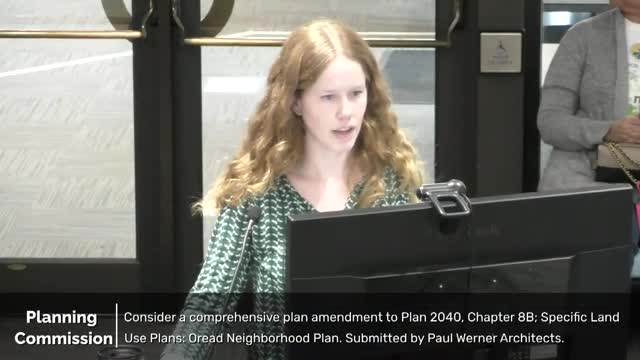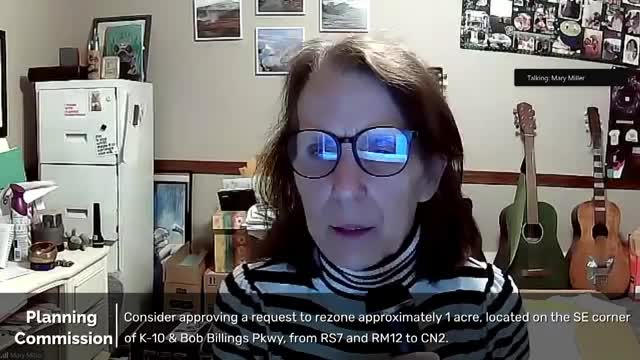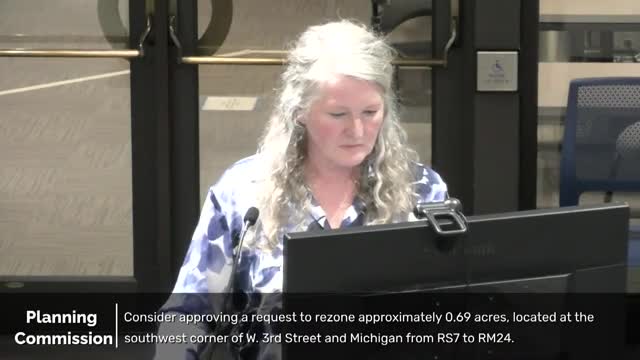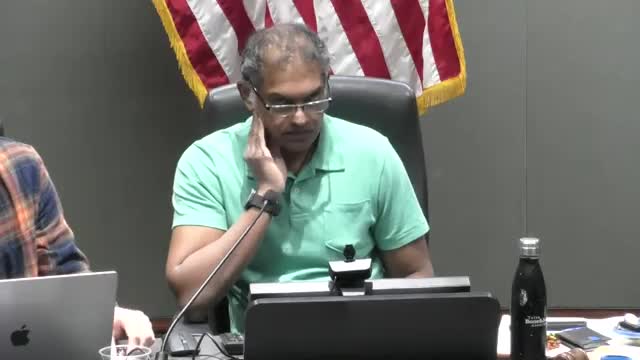Article not found
This article is no longer available. But don't worry—we've gathered other articles that discuss the same topic.

Planning commission approves Ninth Street Missionary Baptist ‘HOPE’ affordable housing project and related map changes

Planning commission forwards Florat Hill rezoning to allow neighborhood‑scale commercial and affordable housing

Split‑zoned Third & Michigan rezoning ends in tie; planning commission records no recommendation

